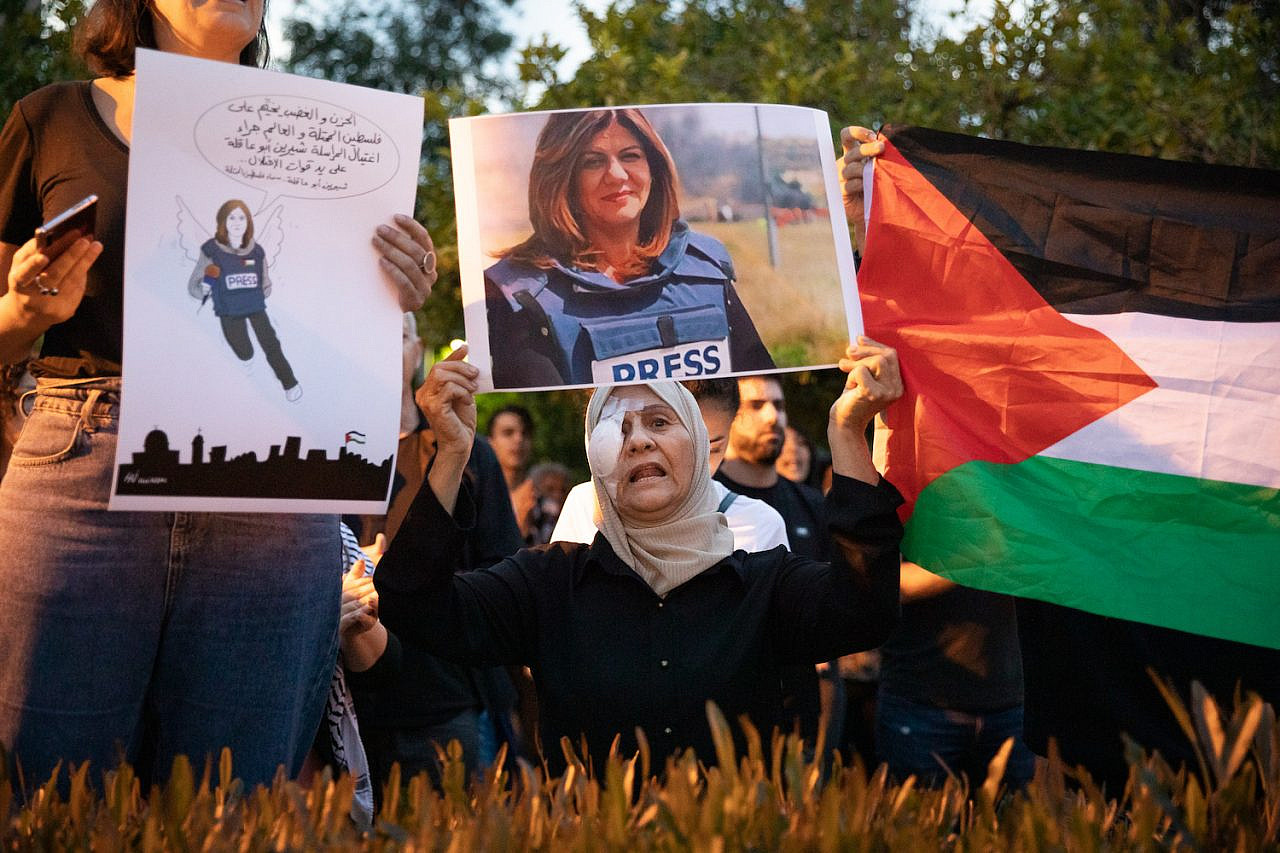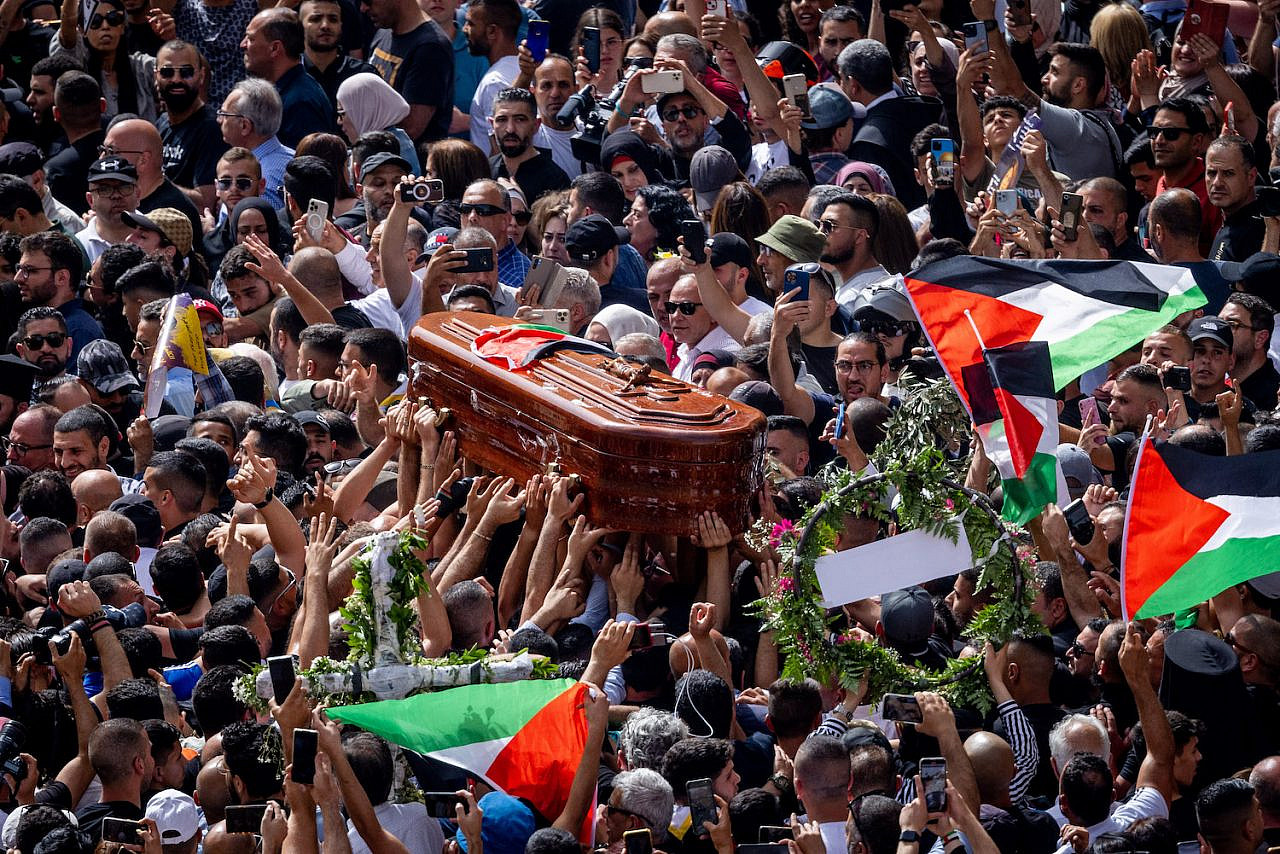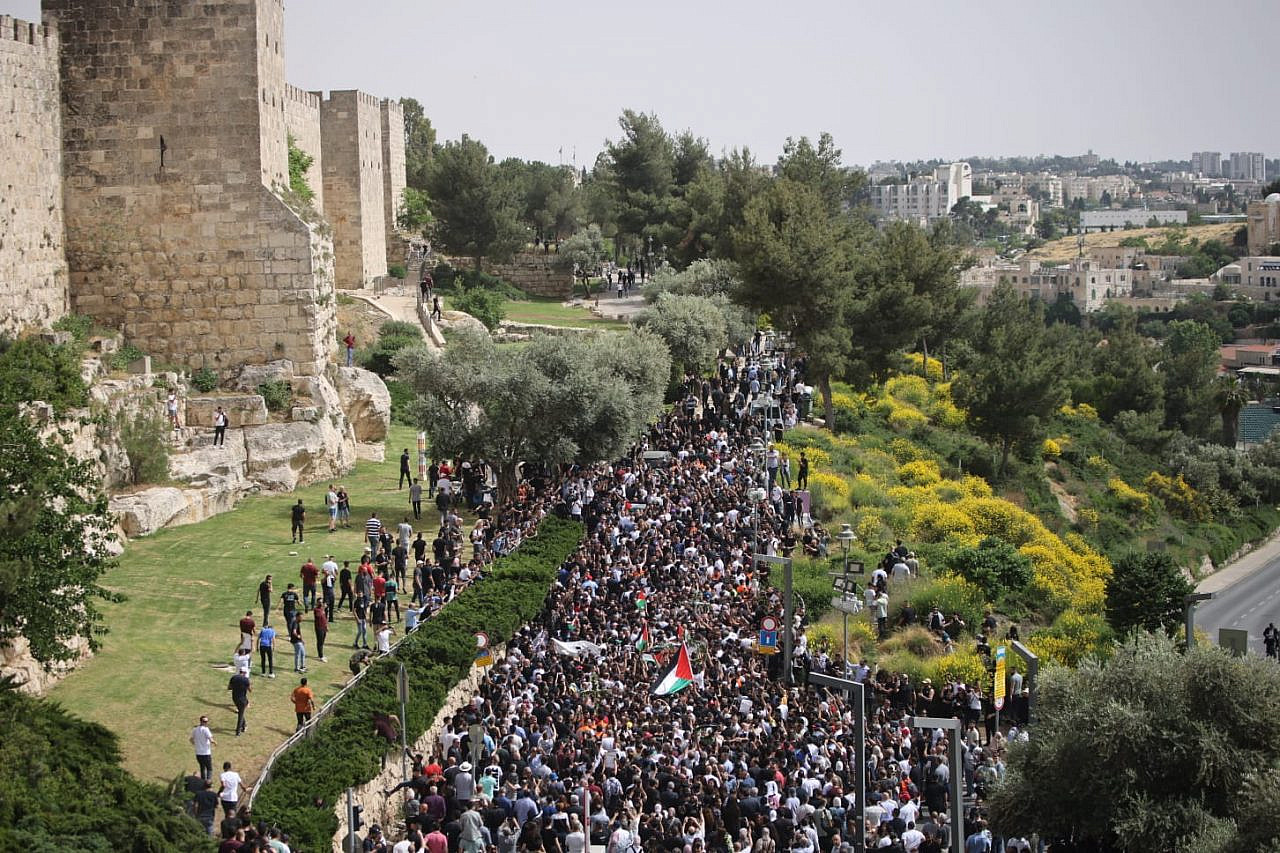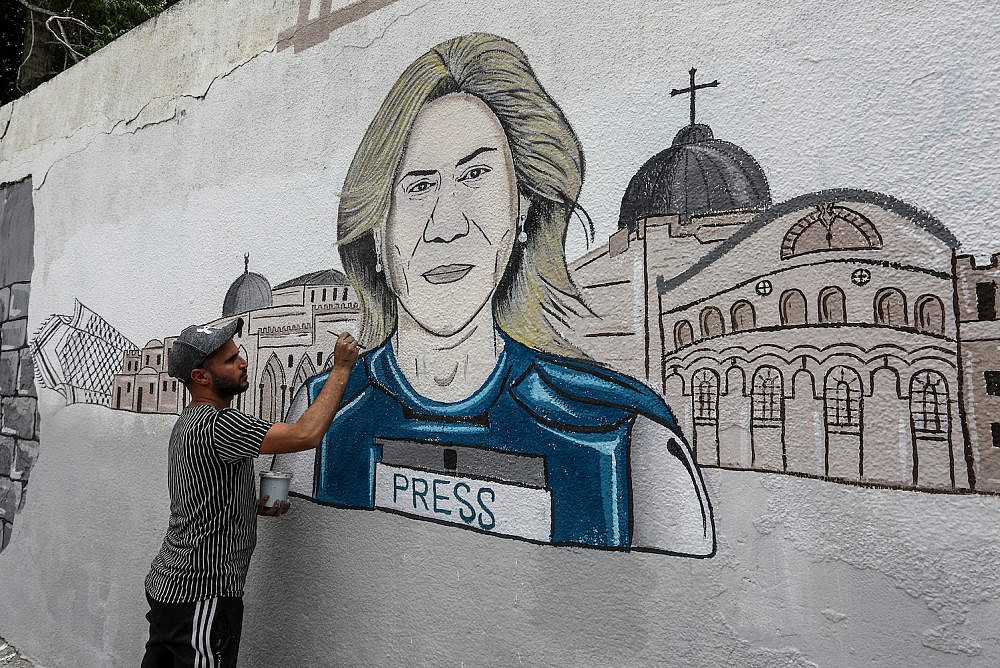“Ana Shireen Abu Aklehhhh, Al Jazeeeraaa, Raaamallahh, Filastiiin.”
Shireen Abu Akleh signed off her reporting of the Second Intifada with a melodic phrase that my generation grew up mimicking. Waking up to the news of her killing last week, I thought this sonic trigger was too specific to resonate with others. I quickly learned this was not the case.
The moment I realized she was gone, my ears started ringing with the melodious sound of her voice which is embedded in all of us; it is still present as I write this. Social media was immediately flooded with quotes of her iconic sign-off, memories of mimicking her tongue, and the power of her words: “I chose journalism to be close to the people. It might not be easy to change the reality but at least I could bring their voice to the world. I am Shireen Abu Akleh.”
A messenger, our collective tongue and vocal cords, Shireen spoke with a cadence that is deeply embedded in our bodies. Immediately after she was killed last week, an entire generation relived the experience of listening to her speak, of hearing her words during one of the most traumatic moments — and seemingly never-ending and compounding experiences — in our history.
What happened last week is not shocking. Over 50 journalists have been killed by the occupation since the Second Intifada. The scale of mourning in reaction to her murder is furthered elevated by the 74th commemoration of the Nakba and exactly one year since Zionist settlers, hand in hand with occupation soldiers, violently accelerated the dispossession of families in Sheikh Jarrah.

For the first time in decades, my generation, which grew up in the shadow of the Second Intifada, felt a sense of unity that we hadn’t felt before. The fragments of our community — refugees in the diaspora, ‘48 Palestinians, Jerusalemites, Gazans, West Bankers — began to weave themselves together as the system of apartheid appeared to begin to break down.
Exactly a year ago this week, I described on these pages how “the pain of being unheard was more piercing than the knowledge of potential death.” This was the hardest line to write. And recalling our experiences of the Second Intifada, the most painful thing was remembering the silence.
Looking back, hearing Shireen Abu Akleh’s words, I am stunned at the capacity of her lungs. She continued to speak and provide oxygen for us for 25 years — even if few were listening. Speaking without an audience must have felt incredibly isolating and disorienting, but she continued, with vocal cords that never became sore, and lungs that held enough air for all of us.
Last year we saw symptoms of structural failure, cracks in the dam beginning to show. Jewish friends of mine who grew up in Zionist homes in the United States began to understand that their relationship to Judaism can exist without a relationship to the Israeli state; they’ve started having difficult conversations with their rabbis and their AIPAC-supporting families.

More Jewish Israelis began to speak up on social media, standing up for Palestinian rights publicly for the first time. Academics and artists all over the world pledged their support for BDS at a faster pace than ever before. Young Palestinians started working towards building alternative forms of government, writing political manifestos, and organizing on the ground through municipal campaigns and beyond.
As Palestinian scholar Noura Erakat noted during one of the emergency Zoom calls at the time: “We’re breaking through a dam — keep pushing.” Sounds of trickling water and chunks of free falling aggregate began to emanate. And most of the cracking is coming from the labor of the generation Shireen raised.
Shireen Abu Akleh studied architecture, historically a discipline that is in service to the 1 percent, yet she refused to practice it. I imagine she would appreciate the notion of man-made structures collapsing as storytelling, and our voices flooding through.
Over the past year, we have questioned whether there is some dissonance between the changing narrative that brings us moments of extreme joy (like realizing that a stranger on the London underground knows where Jenin is), versus the reality on the ground: the increasing dispossession, assassinations, bombings of Gaza, and so on.
But what happens after a dam breaks? The fields flood and nature mourns multiple losses, but slowly, the earth begins to soak and seedlings reemerge. In a recent conversation with Erakat, Marshall Ganz asked how we can make change beyond shifting the narrative. He made a point that understanding must follow action, not the other way around.

Shireen Abu Akleh is the response to this question. Her funeral in Jerusalem alone is a testament to the impact that her voice has made on the ground. Hundreds of thousands of people from all over the country arrived to Jerusalem on Friday, reclaiming the city as Palestinian, with flags raised fearlessly despite the brutal force seen as her coffin was attacked by Israeli police in response to the flag in which it was wrapped.
At a vigil in London on Thursday evening, hundreds of people gathered to mourn her loss. A six-year-old boy, surrounded almost exclusively by women dressed in black with puffy eyes, grabbed the speaker from one of the organizers. With his finger pointing towards the women, he said: “You are Shireen, you are Shireen, you are Shireen, I am Shireen!”
Her assassination, a huge mistake on the occupation’s part, will resonate for another generation. The sonic experience of last May was visceral: chants, car honks, taraleel, applause, songs, and sobbing were heard across the world for weeks. Today, they are resonating even louder. Shireen’s voice rings louder, our voice rings louder, and the dam just cracked a little wider.
“I chose journalism to be close to the people. It might not be easy to change the reality but at least I could bring their voice to the world. I am Shireen Abu Akleh.” Through her voice and those of many others like her, it really is possible to change reality.

